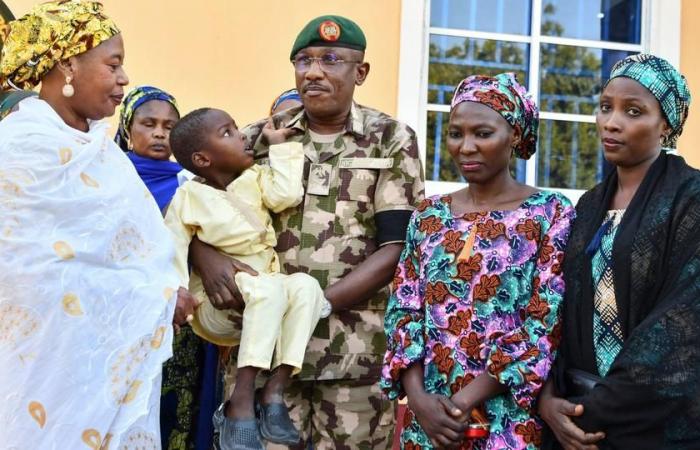A UNICEF nurse, who was kidnapped six years ago by jihadists in northeastern Nigeria, has regained freedom after escaping, the Nigerian army announced Friday. She had twice been forced to marry fighters.
Alice Loksha, a UNICEF nurse, escaped after six years of captivity. She was kidnapped by jihadists, along with two Nigerian midwives working for the International Committee of the Red Cross (ICRC), on March 1, 2018 in an attack targeting the town of Rann (far northeast). Three other aid workers and eight Nigerian soldiers were killed.
The two ICRC employees, Hauwa Liman and Saifura Khorsa, were executed after a few months of detention.
“She (Alice Loksha) was forced to marry a terrorist leader named Abu Umar with whom she had a son,” General Kenneth Chigbu explained during a press briefing in the northern city of Maiduguri. -east), Friday November 15 at the end of the day.
After the death of Abu Umar in 2022, Alice Loksha was forced to marry another ISWAP (Daesh West Africa Province) commander.
Kidnappings are experiencing a worrying increase
The Unicef nurse managed to escape on October 24, before joining army soldiers five days later, General Chigbu said.
A source at the United Nations in the region told AFP they were trying to resolve “complications” around Loksha who was already married and had two children before her abduction. Believing her to be dead, her husband remarried. The worry now is how this child will be welcomed into the family.
Since the rise of Boko Haram in Nigeria around fifteen years ago, kidnappings, particularly of young girls, have increased. The conflict has left 40,000 dead and two million displaced, according to the United Nations.
In 2014, the jihadist group kidnapped 276 students in Chibok, in Borno State (northeast Nigeria), provoking indignation and an international mobilization called “Bring back our girls”. Around a hundred of them are still missing.
Boko Haram, ISWAP and heavily armed criminal gangs, known locally as “bandits”, still regularly kidnap people in northeastern Nigeria but also in northwestern and central states.
According to experts, the increase in the number of kidnappings should be correlated with the economic situation.







